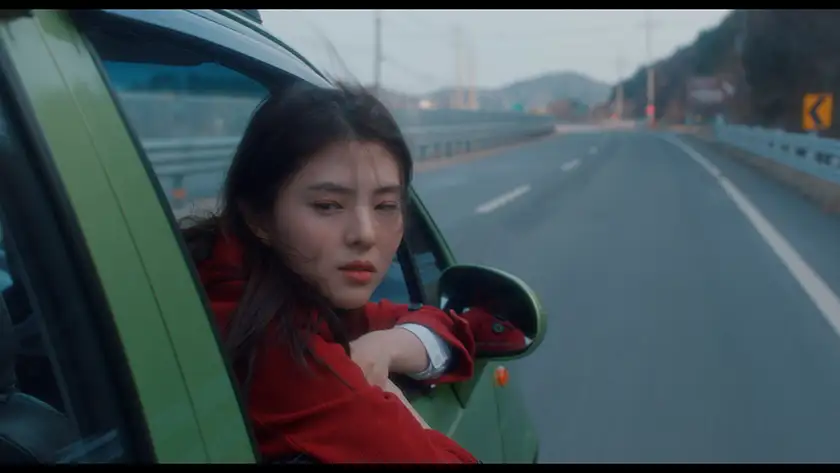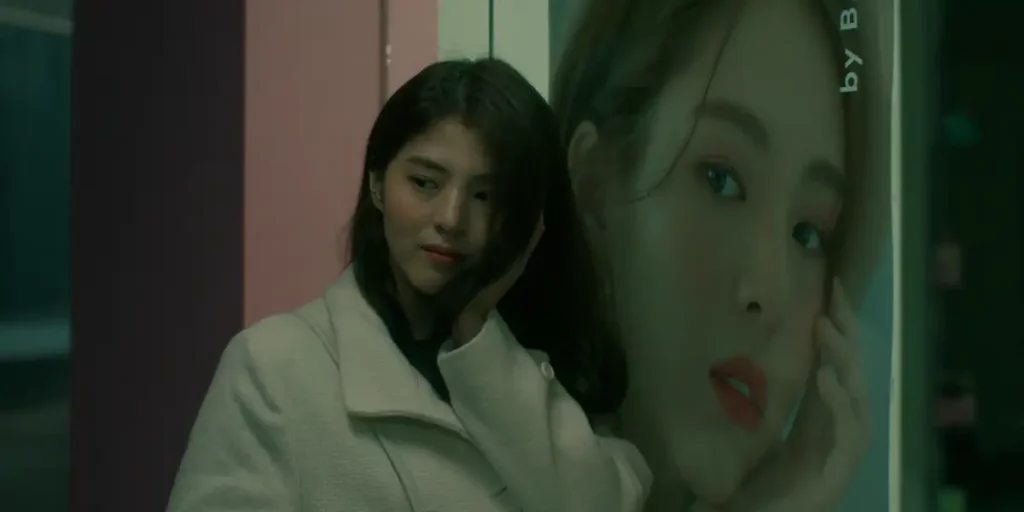Korean drama Heavy Snow is a serene romantic film about two lovers reuniting after years apart – but its short runtime does the story a disservice.
The indie Korean drama Heavy Snow (Pok-seol) starts at a performing arts high school in Gangneung, where Suan (Han Hae-In) is giving an intense performance with a paintball gun. Fellow student Seol (Han So-Hee) approaches her afterwards, deeply impressed. Seol arrived at the school a month ago. She has acted since she was 10, and Suan is a big fan of her shows. There is an immediate, palpable friendship between them as they escape to the beach, surf together and share parts of themselves by the fire. They then meet again to go to Seoul and have fun in each other’s company.
However, when they kiss for the first time, it is as if Su-an has been struck with fear. And when Seol’s fame becomes too big a distraction, the two eventually part ways. Years later (there is a jump in time that is never fully defined), the roles are reversed. Now Su-an is a famous TV actress who is recognised by fans on the street. However, after an emotional breakdown, Su-an returns to the beaches of Gangneung, where she is reunited with a much-changed Seol.
A melodrama about identity, dissatisfied performers and surfing, Heavy Snow is the second feature from writer-director Yun Su-Ik after a decade-long break. It is a film devoted to its two characters and their story, from their slow-burn romance to their worries about their acting careers. Seol is already famous, as seen by the posters in the city that feature her photogenic face. However, she came to the performing arts school wanting a break from that life, struggling with who she has been – and who she wants to be.
There is a metatextual parallel to be drawn here, as Han So-hee is already an immense star thanks to roles in K-dramas such as The World of the Married and My Name (she also starred in the MV for Jungkook’s ‘Seven’). And Han’s subtly good performance externalises the toll that Seol’s fame has taken on her. There is another allusion to Korea’s film industry later on with an extended drug-taking sequence, which comes in the wake of discussions over the tragic impact Korea’s strict anti-drug attitude has had on its stars.

In contrast to Seol, the younger Suan is more tomboyish and (as eventually revealed) more uncommitted to a relationship. On the beach, she films Seol with her camcorder because she doesn’t think she’ll be in movies, so she hopes to make them herself. And yet, as time goes by, Suan becomes the antithesis of what she wanted to be. And her return to Gangneung could be viewed as her trying to recapture the intimacy she had before with Seol.
Unfortunately, the short runtime of Heavy Snow does that part of the story a disservice. The film is only 77 minutes long, which ends up being not enough time for a story that requires more depth than it gets. That feeling is reinforced in the final act, which edges towards fantastical dream logic but doesn’t flesh that out enough. At least it allows Yun Su-Ik to show some flair, going from still frames to some visually striking moments. A kaleidoscopic scene at a bar then leads to the camera closely following Suan as she learns to surf, sometimes dipping underwater. And when the camera is focusing on a wide and empty beach, it can be quite picturesque.
Overall, Heavy Snow is a steady watch that makes you wish it left you more engaged. Nevertheless, it is also a film that shows a lot of promise for its director, with appealing performances of Han Hae-In and Han So-Hee and a wintry, mysterious tone that matches the setting. And like the beach of Gangneung where most of the movie takes place, where the crashing and lapping waves provide a constant soundtrack, Heavy Snow is quiet and serene.
Heavy Snow was screened at BFI Flare on March 18-23, 2024. Read our BF Flare reviews and our list of 10 films to watch at BFI Flare!

